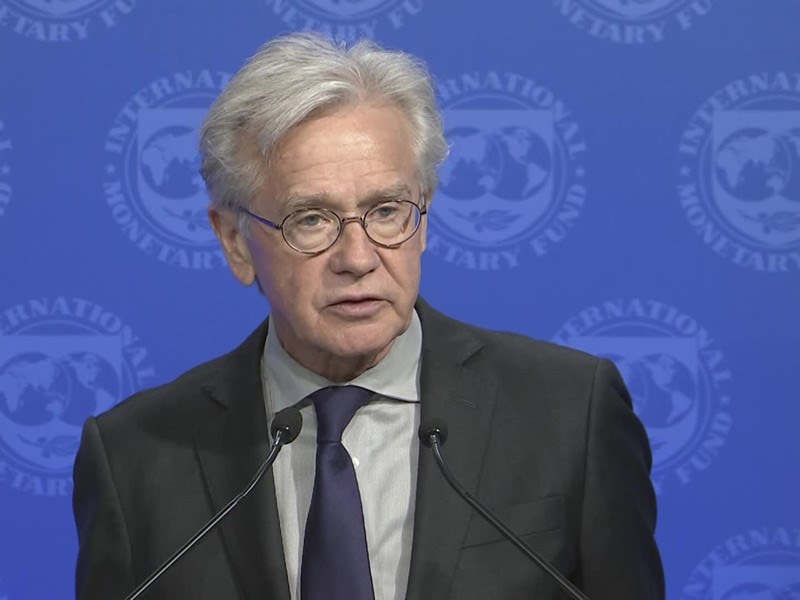IMF coronavirus

The economic cost from the outbreak of coronavirus strain COVID-19 is still uncertain but will certainly negatively impact global growth, IMF spokesman Gerry Rice told reporters Thursday in Washington, DC.
The IMF is looking at all the data available and hopes to have a more concrete outlook of the ultimate impact when it publishes the next World Economic Outlook report in April.
“We are likely to downgrade our growth projections for the world in the in the world economic outlook in April. Kristalina Georgieva has already said that if you saw her statement that the weekend. I do not have another number for you today. But clearly the virus is gonna have an impact on growth.”
In consultation with its members, the IMF is examining options on how to hold its Spring Meetings in April, Rice said.
“We remain fully committed to sharing the funds policy advice. Maintaining our dialog with our membership and stakeholders, which is the objective of the Spring Meetings. So we are looking at this as we speak. We are considering various options. The institutions, both institutions, have well-developed contingency plans,” Rice said.
The coronavirus COV-19 outbreak is not confined by national borders, so the economic response to it must also be international, said Rice.
And the IMF supports the measures taken so far by China and other countries to prop up their economies as the health crisis impacts them, Rice added.
“In the event that things get worse, we should be in a position of thinking about a more synchronized, a more coordinated response that would include economic measures. I think it would include health measures as well. We are not at that point yet. On China, we are very supportive of what the Chinese government has done. The Chinese authorities, they have taken a range of measures, as you mentioned, on the monetary, on the on the fiscal side. Other countries have also already taken some action. But we are we’re very supportive of the of the efforts China has taken.”
The IMF has a full array of financial tools and incentives to help lower income countries with emergency funding so that money used to stave off disease does not come at the expense of long term economic stability.
Read the full transcript at: https://www.imf.org/en/News





